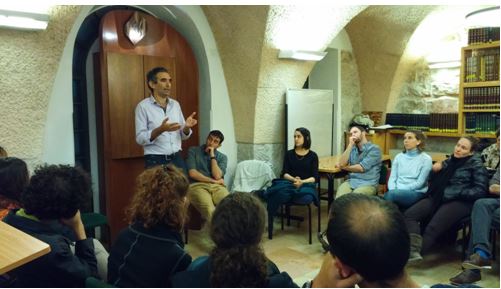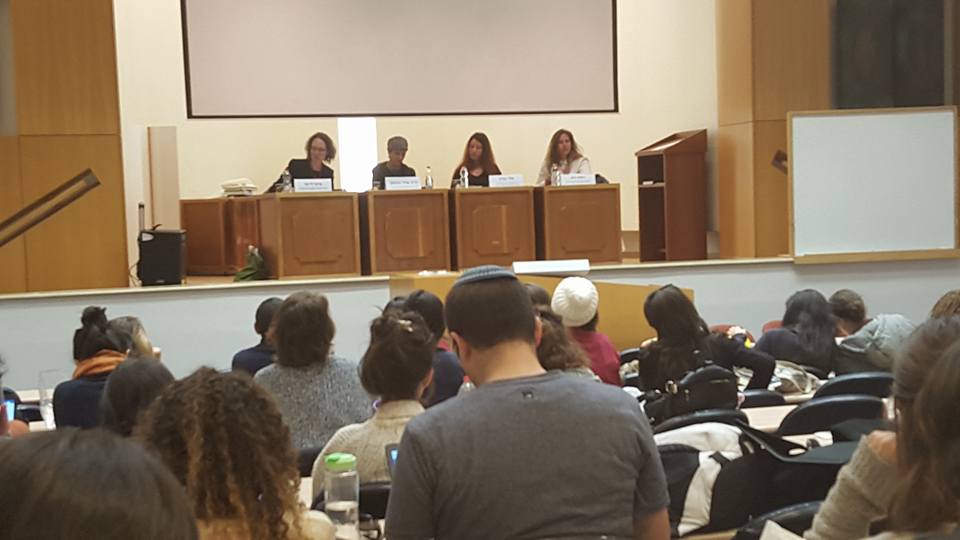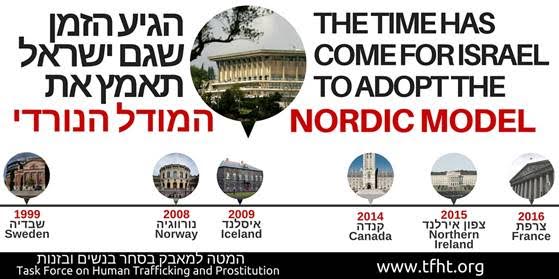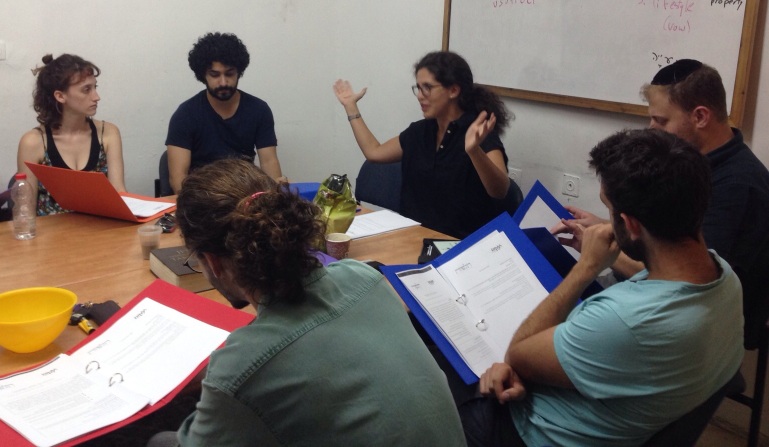Channeling critical practical and human resources to “Righteous Rescuers (Hasiday Umot Olam) living in Israel who risked their lives to save Jews during the Shoah.
This population is aging and shrinking. Though there are only nine family units currently living in Israel, all are dear to us. Beyond visiting them regularly in their homes – of profound value to them – ATZUM serves as an advocate to ensure that other entities tasked with the responsibility to respond to the population’s practical needs do so, and step in when there is no other resource.
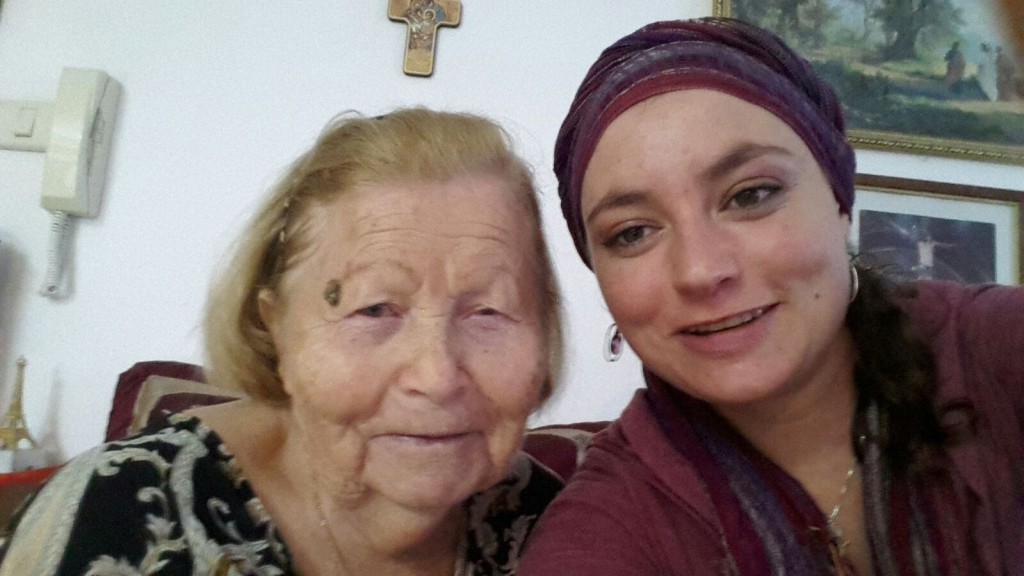
Photo; Tsila Lavi-Shalom, Coordinator of ATZUM’S Righteous Among the Nations Project, with program recipient.
Beyond this, we are now involved in a volunteer effort to coordinate a holiday and birthday card project from Israeli and gap-year students to Righteous Rescuers (Hasiday Umot Olam) in Poland. Volunteers, with logistic support from ATZUM, will encourage schools and youth movements in Israel and abroad to join this effort. Their students will learn about the Righteous Rescuers’ heroism and then prepare cards to be distributed to them on their birthdays and holidays. This initiative will be undertaken in conjunction with Polin – the Museum of the History of Polish Jews in Warsaw. Polin is in touch with 300 Polish citizens who rescued Jews during the Shoah.




